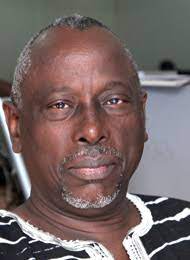There is an impression in our region that the media in Rwanda is rather docile and boring because it does not permit feisty, robust and noisy debate on a variety of issues. This is, of course, a false notion, and those who hold it do not know what has been going on especially in tweeter sphere and blogosphere.

There is an impression in our region that the media in Rwanda is rather docile and boring because it does not permit feisty, robust and noisy debate on a variety of issues.
This is, of course, a false notion, and those who hold it do not know what has been going on especially in tweeter sphere and blogosphere.
There, the debate can be vigorous and forceful and unrelenting, especially in reaction to a portrayal of Rwanda that is erroneous or biased whether by design or through ignorance.
Last week, an article in the East African by Dr Christopher Kayumba, apparently about President Paul Kagame’s two major challenges in the next seven years triggered lively and varied responses from Rwandans.
Some took issue with his analysis, contending that it was no such thing. They said he was proposing for action things that were already in place.
Others took him to task about his role as a teacher of journalism. Their question was: if he writes this sort of article, what quality of argument were his students expected to produce?
Dr Kayumba had his supporters, too. They heaped praise on him for writing such a brilliant, insightful analysis of what lies ahead for President Kagame.
All this is very healthy. Reasoned, principled and civilised disagreement that takes an individual’s right to say his bit as a given is the basis of good discussion and understanding, which are in turn the foundation of tolerance and democracy.
But today, I am not concerned with the validity of Kayumba’s views or the merits or otherwise of the various responses to his article. I am more interested in what both the article and reactions to it reveal about journalism and the level of freedom of expression in Rwanda.
First, Dr Kayumba’s right, or indeed that of anyone, to express his opinion is not in question. It is taken for granted.
What is at issue is the weight of what he says considering that he is a Rwandan and, more importantly, his status as a teacher of journalism. In this sense, criticism is not restricted to Kayumba but extends to other Rwandans of similar stature.
The point is that a Rwandan, more so an educated one, should be held to a higher moral and intellectual standard when he makes what are supposed to be reasoned pronouncements on his country because he is supposed to know better.
This is a lesson that was drummed into our young Christian heads when we were growing up. There was a dual purpose to this lesson. It was to make us abhor wrong so that we would never do it and to hold us accountable if we ever did. And so we were constantly told that we would be judged more strictly because we are supposed to know better.
A character in Graham Greene’s novel, The Herat of the Matter, makes the same point in a simple but more profound manner, better than any treatise on the subject by a moral theologian would. He said of a catholic weighed down by sin and guilt, "we are damned by our knowledge”.
The relationship between knowledge, responsibility and accountability, and guilt is not restricted to Christian theology. It is also at the heart of human conduct in both the private and public domains. It extends to public officials and intellectuals, especially those that shape public opinion or form the minds of others.
The second point is that all those who did war with or for Kayumba were young people. This is significant, for a number of reasons.
The next seven years and beyond are about their future. No one is going to misrepresent that future or say trivial things about it. They will speak out and let everyone know what they think. And their reasoning is deep and commitment to the fight for truth strong.
It has been said many times that the transition to a post-Kagame period has already begun. We are seeing it in intellectual terms, attitude and mindset, as well as in leadership.
This is, of course, not to say that the older folks have no interest in what is happening or that they are unwilling to do anything about it. They do, but when the younger fighters come to the fore, they are content to play a supporting role.
Third, writing for the media is considered correct if it fits a western designed narrative of so-called balance and objectivity. The logic is this: any positives must be balanced by negatives, and it is usually better if the latter outweigh the former. If negative points do not exist, invent them so as to get the cardinal balance rule right.
Columnists and other writers of opinion are like poets. In presenting an argument or commentary, they have the licence to create their own idiom and style and do not have to conform to the strictures of conventional forms. Nor should they adhere to, and indeed should subvert, a received narrative form.
When there are positive developments to be hailed, shout about it. When there are challenges to be overcome, don’t be shy to say so. If there are negative trends, point them out. But none of these should suffer at the expense of the need to appear balanced.


